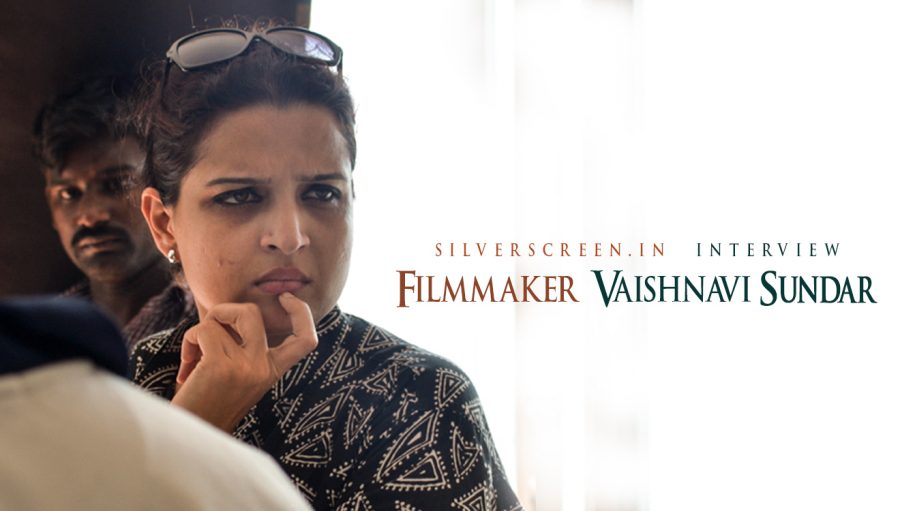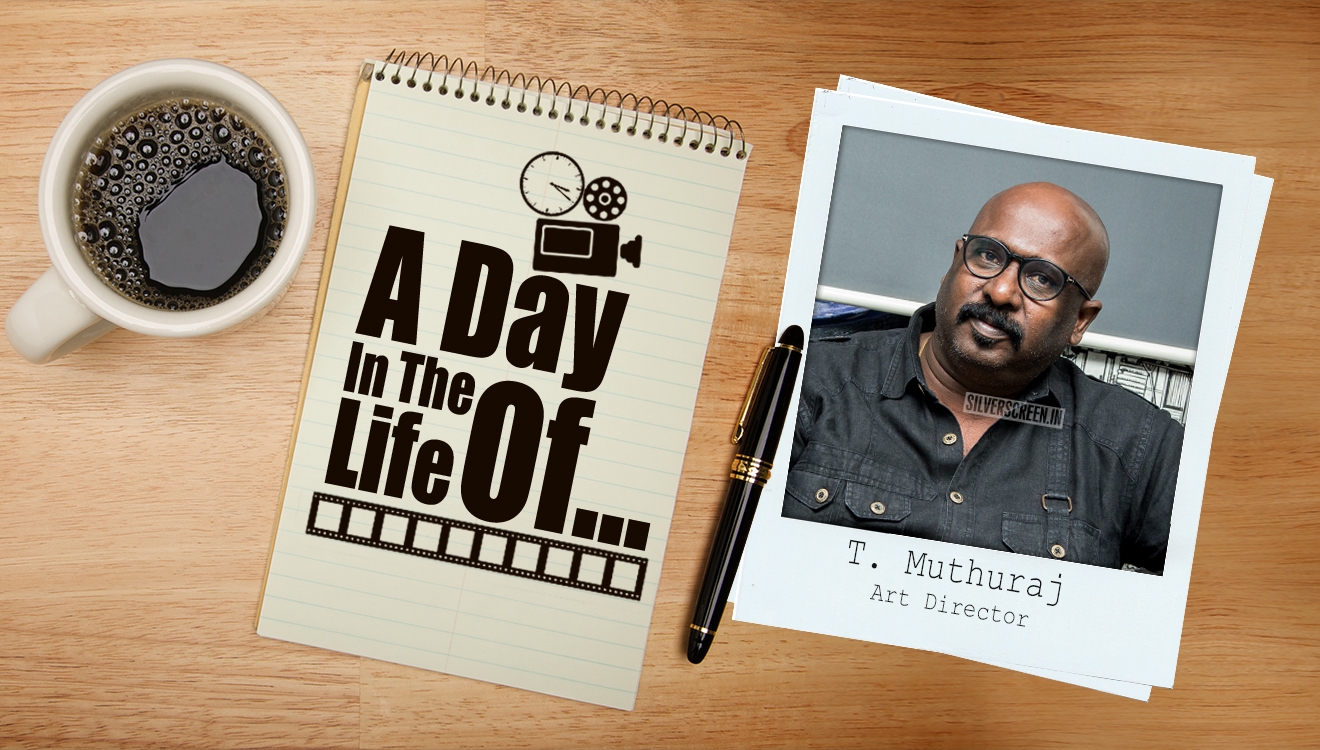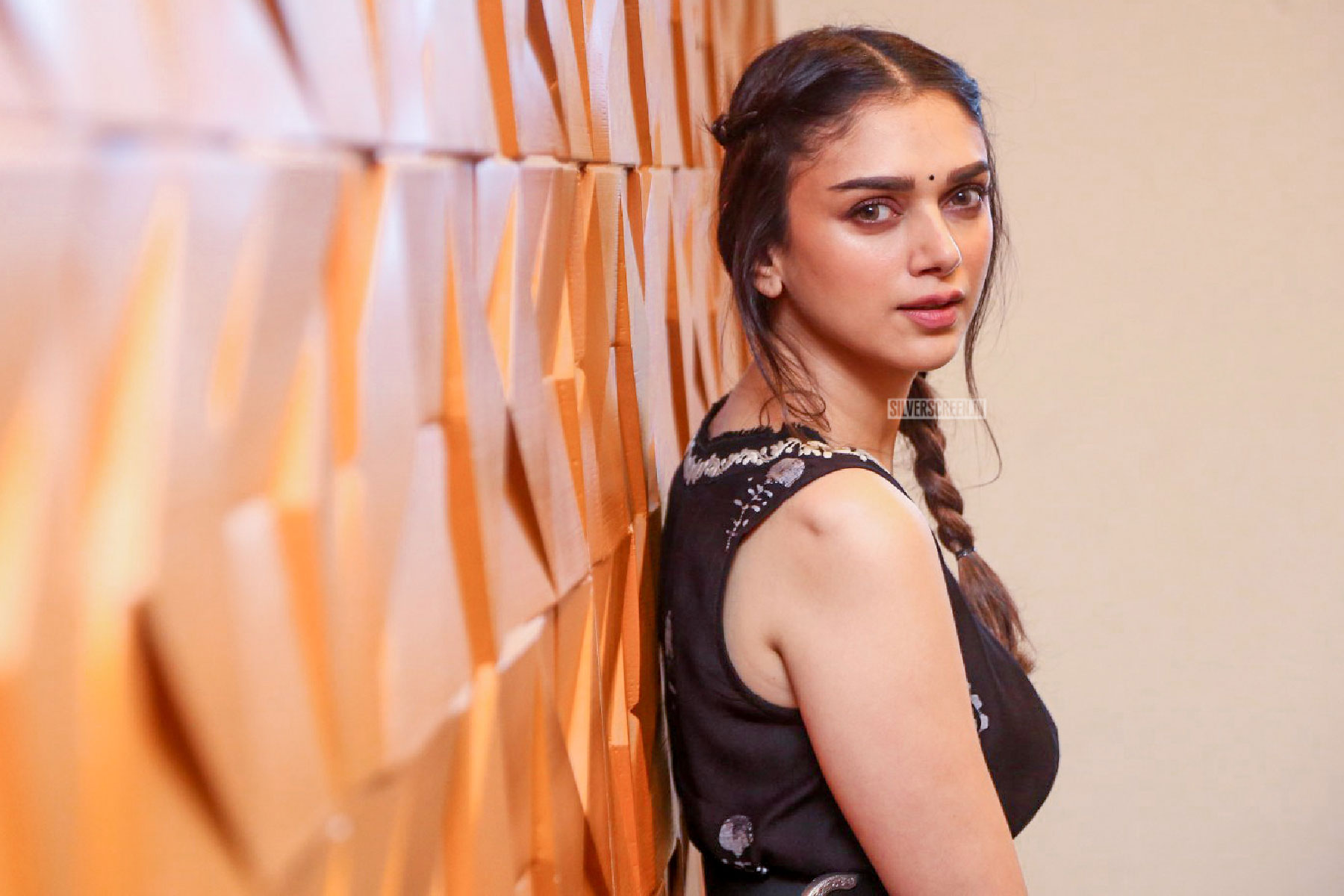Vaishnavi Sundar’s fourth directorial – Go Ahead And Take Left – was recently screened at the Women’s International Film Festival, held in Islamabad on March 10 and 11.
It was during a short holiday in Sikkim when Vaishnavi Sundar had a chance encounter with what would be the subject of her Hindi short film, Go Ahead And Take Left. “I was doing the regular touristy things, walking around the city, when I noticed this female traffic cop, Anju, on the road. There was something very unique about her,” Vaishnavi says. “There is a no-honk policy in Sikkim, so the atmosphere was calm. That calmness was on her face too, even as she was standing in the hot sun, maneuvering the busy traffic on the road. I found the sight of her so charming.”
Go Ahead And Take Left is Chennai-based Vaishnavi’s fourth film that she had directed and edited. That the central character of the multi-faceted filmmaker’s project is a strong, independent woman is not something incidental. A staunch feminist, she is the brain behind Women Making Films, a vibrant network of women filmmakers, technicians and artistes across the world. In the traditionally masculine space that cinema is, Vaishnavi and Women Making Films strive to bring about gender equality by encouraging more women to take up cinema as a profession, supporting women filmmakers in their ventures, and narrating real stories of women in mainstream films.
Vaishnavi, however, did not attend the film festival in Islamabad – a novel event in which several women-centric films, made by women filmmakers from different parts of the world, would be screened in a country infamous for gender violence and misogyny. “Thanks to the tumultuous relations between India and Pakistan, the visa process is so complicated and time-consuming. I got overwhelmed by the procedures. It scared me,” she says. The festival is held by Pakistan-based organisation, Women Through Film, with which Women Making Films plans to collaborate soon.
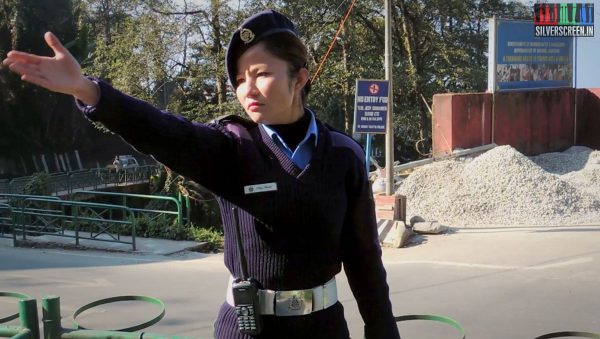 Talking about Go Ahead And Take Left and its central character, Vaishnavi says, “Of the things that I found interesting about Anju, the striking one was that she was not able to comprehend my questions on sexism. I am sure she has her own hardships – economic and familial – in life. But it made me jealous that she was so untouched by things like misogyny and gender disparity. She would shrug off my questions saying, “I can do everything that a man does. How are we unequal?”
Talking about Go Ahead And Take Left and its central character, Vaishnavi says, “Of the things that I found interesting about Anju, the striking one was that she was not able to comprehend my questions on sexism. I am sure she has her own hardships – economic and familial – in life. But it made me jealous that she was so untouched by things like misogyny and gender disparity. She would shrug off my questions saying, “I can do everything that a man does. How are we unequal?”
A question that, precisely, sums up what Vaishnavi is attempting to achieve through Women Making Films.
*****
WMF is an outcome of anger and disappointment. Vaishnavi had been furious with the “way things were in the country”. “We have a giant film industry, but the participation of women in it is negligible. Instead of whining, I decided to do something about it. A strong lesson that I learned when I subscribed to feminism in my lifestyle is that ‘community is where future is going to be’. I wanted to make a community where women in the film industry could display their portfolio, collaborate with each other easily, and exchange ideas.”
Immediately after its inception, WMF successfully organised a film festival, The First Festival, inspired by a similar initiative – ‘Directed By Women’, a women-only community in the US, featuring films of woman filmmakers. The screenings were held in Indian cities like Noida, Trivandrum, Mumbai, Chennai and Bengaluru. In February 2016, Vaishnavi and WMF took the women’s film festival to the North East India, with the support of Gauhati Film Club, and in May 2016, a similar festival was hosted in New York, and one in Philadelphia in October 2016.
Currently, there are 121 members in WMF. “I am inviting everyone, who has her name on the credit list of a film, to be a part of this forum. There is no discrimination on the basis of their political ideology or quality of work. It’s up to them if they want to work with other members of the forum. I am just creating a platform where they can communicate with each other,” she says.
A post-graduate in Business Administration, Vaishnavi quit her corporate job to pursue her creative aspirations. She started off as a stage artiste with Chennai-based theatre group, Theatre Nisha, and later, as a director. She made her first short film, Pava, in 2014. The second film, The Catalyst, based on a short story by Kartar Singh Duggal, was made in 2015. Her third project was a documentary; Unearthing The Treasures Of Ariyalur is one of the few Indian documentaries on Paleontology. It was commissioned to her by Nirmukta – a freethought forum. Both, The Catalyst and the documentary, were crowd-funded productions, and the latter was made under the banner of her film company, Lime Soda Films.
“Feminism is essential”
At one of the home-screenings of Pava, there was a male filmmaker who would not stop asking questions about the film. But never to Vaishnavi, the film’s writer-director, but to the male protagonist of the film who was sitting next to her. “Then, I didn’t realise what made him do that,” says Vaishnavi, recounting many subtle, yet evident sexist experiences she had in the industry.
“I do get a lot of unsolicited messages from strangers, and not a lot of people appreciate a forum like WMF. On the forum’s social media pages, I regularly get comments like ‘You are exaggerating the situation’ and that ‘there is no thing called gender disparity in the film industry anymore’. I handle the trolls with patience. I tell them why feminism is relevant today. Suppose there are two glasses – one is filled with water and one is empty. We can talk about equality only when both the glasses are full, not when it is the way it is now. We are pouring more water into the glass which is already full,” she says.
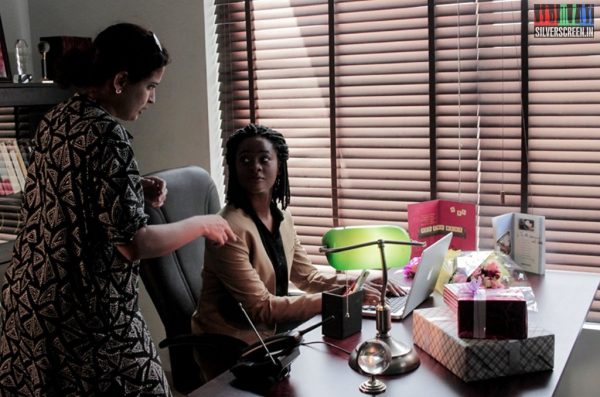 Of course, there’s a considerable rise in the number of female directors, technicians, and actors – Vaishnavi agrees – but that’s nothing compared to the increase in the number of men in the field. “Back then, if there were three women filmmakers and 20 men filmmakers in the industry, now the number is 300 and 20000 respectively. That’s not gender quality.”
Of course, there’s a considerable rise in the number of female directors, technicians, and actors – Vaishnavi agrees – but that’s nothing compared to the increase in the number of men in the field. “Back then, if there were three women filmmakers and 20 men filmmakers in the industry, now the number is 300 and 20000 respectively. That’s not gender quality.”
While one could say that times are changing with successful women filmmakers like Konkana Sen Sharma, Alankrita, Nandita Das, Mira Nair and Deepa Mehta, it’s just that they are more visible now, due to the surge of information channels, declares Vaishnavi. “That feminism is there in the industry now, is a delusion that men want you to believe. It’s not a level playing field. Even a lousy male director is able to grab projects one after another, while the struggle is many times harder for a far more capable female director.”
Worse still, there are women who think feminism is a useless ideology. “For one, take the case of Priyanka Chopra, who is doing really well in the East as well as in the West. She is a very inspiring figure, and I am proud of what she does and her success. But it is traumatizing that the feminism movement is not getting encouraged by women of her stature. She said once, ‘I am not a feminist, but I believe in equality for everyone’, which is clearly a lack of awareness about the ideology. You are a feminist if you believe in gender equality in its true sense. Why do you want to deny it?” asks Vaishnavi.
*****
When a woman gets trolled and abused online and offline, why aren’t more women speaking up for her? Vaishnavi questions. “Take for instance, Kangana has gone against Karan Johar, one of the most powerful person in the industry, all by herself. There are so many people from the film industry who can take a stand on this, yet are not willing to. There is zero support system for women who get targeted on social media. When Suraaj spoke against Tamannaah, there was a little support from people like Nayanthara, but that’s a rare case. Youngsters like Varalakshmi are doing a great thing by garnering support against gender violence within the industry, but senior stars are denying any kind of sexism in the industry. That they are making this choice is disheartening. If they are not doing anything for their gender, who else is going to do it? The fact that WMF was founded by someone like me, who is not a star, says a lot about it.”
Vaishnavi hopes that many more sensible female-centric films, made by women, would be made in India in the coming years. “Women should start telling their stories. Men are getting it all wrong.”
On WMF blog, Vaishnavi has co-written a series titled ‘Misguided Portrayal‘ with Prateek Sharma, a feminist himself, where she talks about erroneous characterisation of women, homosexuals and other minorities in Indian films. “Portrayal of strong women in our films is always problematic,” she says. “Take for instance, in films like Mardaani and Iraivi, the women are either being ‘damsels in distress’ or they are beating up men and behaving like a man. That’s not the way it should be. I don’t think any male filmmaker/writer can think like a woman and make a genuine film about women, unless he collaborates with a woman,” she says.
“One exception to it is Aval Appadithaan, a 1978 Tamil language film starring Kamal Haasan and Rajinikanth. Even K Balachander got it all wrong. Women in our films are always angry or someone who would sacrifice everything for family. We must not glorify such women and make them shoulder the role of a supreme provider who forgoes all her personal wishes and aspirations. Why should she?”
Future Of WMF
More cross-border collaborations, more film festivals, more interviews with women filmmakers and technicians who get meagre media attention – Vaishnavi has a number of plans for WMF. “We will also be holding many workshops on niche departments like color correction, VFX and animation, involving women and young girls,” she says. “I want to organise more events in North East India.”
Recommended
“There are few women producers in India. However, they (like Guneet Monga) are doing very well. I hope WMF will be able to aid the women filmmakers who can’t find producers and distributors for their films by being the support system and network interface,” says Vaishnavi. She is also working on three feature film scripts that she can’t seem to finish. “I am my harshest critic. I don’t want my script to repeat all the cliches and mistakes that our filmmakers have been making so far. I have been repeatedly rewriting the scripts. Someday, when I am most confident about them, I will make my first feature film.”
*****
The Vaishnavi Sundar interview is a Silverscreen exclusive.
